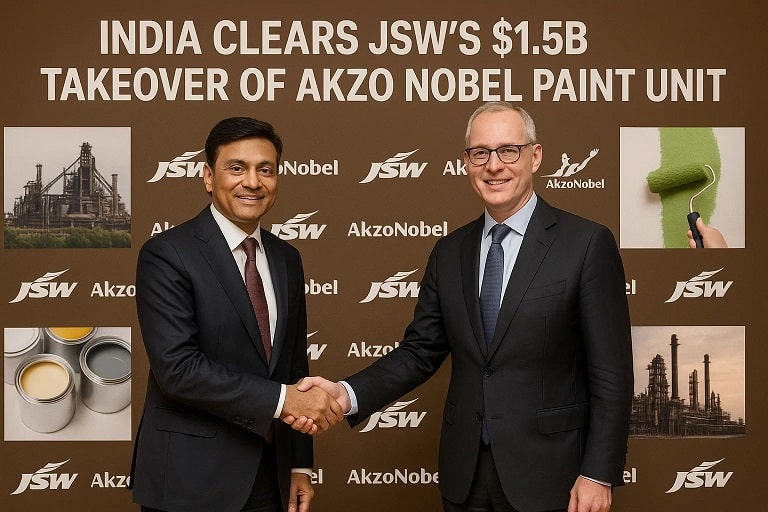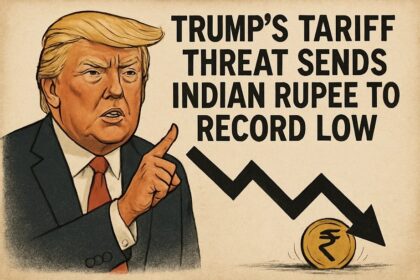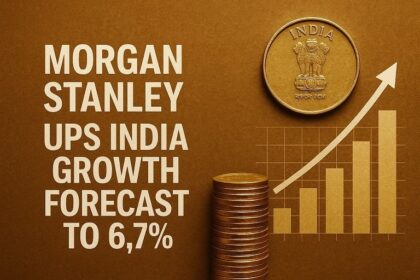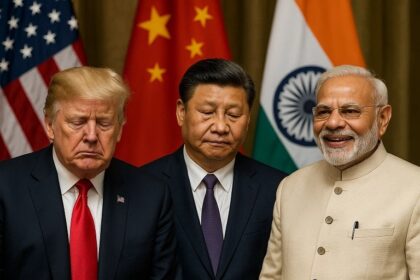India Clears JSW’s $1.5B Takeover of Akzo Nobel Paint Unit
In a major boost to India’s paints sector, the Competition Commission of India (CCI) has approved JSW Paints’ acquisition of up to 75% stake in Akzo Nobel India for approximately $1.5 billion (Rs 12,915 crore). The clearance, granted on September 16, 2025, paves the way for JSW Group to become the fourth-largest player in India’s competitive paints market, behind Asian Paints, Berger Paints, and Kansai Nerolac. This strategic deal, initially announced in June 2025, combines Akzo Nobel’s established Dulux brand with JSW’s innovative paints portfolio, promising enhanced market presence and product diversification. As India’s construction and real estate sectors boom, this takeover is set to reshape industry dynamics, drive innovation, and create new growth opportunities. This comprehensive guide explores the deal’s details, latest developments, historical context, impacts, future scopes, FAQs, and more.
Why the JSW-Akzo Nobel Deal Clearance Matters
The CCI approval marks a pivotal moment for India’s paints industry, valued at over Rs 70,000 crore and growing at 10-12% annually. JSW Paints, a subsidiary of the Sajjan Jindal-led JSW Group, will acquire 74.76% of Akzo Nobel India through a share purchase agreement and open offer, integrating Akzo’s premium decorative and industrial coatings with JSW’s eco-friendly, affordable solutions. This consolidation strengthens JSW’s position in a market dominated by organized players, where unorganized segments still hold 30% share. The deal aligns with India’s push for self-reliance in manufacturing, potentially boosting exports and innovation in sustainable paints.
Details of the JSW-Akzo Nobel Takeover
- Deal Value: Rs 12,915 crore ($1.5 billion) for up to 75% stake.
- Stake Acquisition: 74.76% from Akzo Nobel NV, with an open offer for additional shares.
- Brands Involved: Akzo Nobel’s Dulux, International, and Sikkens; JSW’s eco-friendly paints.
- Timeline: Announced June 27, 2025; CCI approved September 16, 2025; completion expected by Q4 2025.
- Strategic Fit: Combines Akzo’s global expertise with JSW’s domestic manufacturing strength.
Latest Events and News Surrounding the Deal
CCI Approval on September 16, 2025
On September 16, 2025, the CCI officially cleared the acquisition, stating it would not cause appreciable adverse effects on competition in India’s paints market. The approval came after a detailed review, ensuring the deal promotes healthy market dynamics. JSW Paints expressed enthusiasm, noting the merger will enhance product offerings and sustainability initiatives.
Stock Market Reactions on September 17, 2025
Akzo Nobel India shares surged 5% on September 17, 2025, trading at Rs 3,200, while JSW Group stocks gained 2-3% amid positive analyst upgrades. Brokerages like Kotak Securities highlighted the deal’s potential to add Rs 5,000 crore to JSW’s annual revenue, with synergies in distribution and R&D.
Industry Analyst Insights
Post-approval, experts on September 17, 2025, predicted the deal could accelerate consolidation in the paints sector, similar to recent moves by Aditya Birla Group’s Grasim entering the market. JSW’s focus on green chemistry and Akzo’s premium positioning are expected to capture a larger share of the growing decorative paints segment.
Regulatory and Open Offer Updates
JSW Paints will launch an open offer for an additional 25.24% stake at Rs 2,950 per share, as mandated by SEBI regulations. The deal’s clearance has been welcomed by industry bodies like the Indian Paint Association, emphasizing its role in fostering innovation.
Evolution of India’s Paints Industry and Key Deals
India’s paints market has evolved from a fragmented industry in the 1990s to a Rs 70,000 crore powerhouse by 2025, driven by urbanization and real estate growth. Akzo Nobel entered India in 1954 through ICI India, rebranding to Akzo Nobel India in 2008 after a global merger. JSW Paints, launched in 2019, quickly scaled to Rs 2,000 crore revenue by focusing on water-based, low-VOC products. Past deals, like Asian Paints’ acquisition of Ess Ess Bathroom Products in 2018, set precedents for consolidation. The JSW-Akzo deal follows Grasim’s 2023 entry into paints, intensifying competition.
Timeline of Major Paints Industry Deals in India
| Year | Deal | Details |
|---|---|---|
| 2008 | Akzo Nobel Acquires ICI | Formed Akzo Nobel India, strengthening decorative paints. |
| 2018 | Asian Paints Buys Ess Ess | Expanded into bath fittings, signaling diversification. |
| 2023 | Grasim Enters Paints Market | Invested Rs 10,000 crore to challenge incumbents. |
| June 2025 | JSW-Akzo Deal Announced | Rs 12,915 crore for 75% stake in Akzo Nobel India. |
| September 2025 | CCI Approves Deal | Clears path for JSW to become fourth-largest player. |
Impacts of the JSW-Akzo Nobel Takeover
Economic Boost and Job Creation
The deal is projected to create 5,000 direct jobs in manufacturing and distribution by 2027, with ripple effects in supply chains. JSW’s expanded capacity could add Rs 5,000 crore to India’s paints exports, targeting markets like Southeast Asia and Africa.
Market Competition and Consumer Benefits
Post-acquisition, JSW-Akzo will hold 12-15% market share, intensifying competition and potentially lowering prices for premium paints. Consumers gain from innovative products, like eco-friendly coatings, amid rising demand from real estate projects worth Rs 10 lakh crore.
Sustainability and Innovation
Akzo’s R&D expertise combined with JSW’s green focus will drive low-emission paints, aligning with India’s net-zero goals. This could reduce the sector’s carbon footprint by 20% through efficient manufacturing.
Potential Challenges
Integration risks, such as cultural clashes between Dutch and Indian operations, and regulatory scrutiny on pricing could arise. Market saturation in urban areas may pressure margins.
Future Scopes: What Lies Ahead for JSW-Akzo and India’s Paints Sector
Growth Projections to 2030
By 2030, the combined entity could achieve Rs 15,000 crore revenue, capturing 20% market share through digital marketing and rural expansion. India’s paints market is forecasted to reach Rs 1.2 lakh crore, driven by infrastructure spending.
Innovation and Expansion
JSW plans to invest Rs 2,000 crore in R&D for smart paints and anti-microbial coatings. International expansion into Europe and the Middle East could follow, leveraging Akzo’s global network.
Industry Consolidation Trends
The deal may trigger more mergers, with smaller players like Nippon Paint eyeing acquisitions. Government policies like PLI schemes will support domestic manufacturing.
Potential Scenarios for 2030
- Optimistic: JSW-Akzo becomes third-largest, with 25% market share and Rs 20,000 crore revenue.
- Moderate: Steady 15% growth, focusing on sustainability.
- Pessimistic: Economic slowdown limits expansion to 10% share.
Frequently Asked Questions (FAQs)
What is the value of the JSW-Akzo Nobel deal?
The takeover is valued at Rs 12,915 crore ($1.5 billion) for up to 75% stake in Akzo Nobel India.
When was the deal approved by CCI?
The CCI cleared the acquisition on September 16, 2025.
How will the deal impact JSW’s position in the paints market?
It positions JSW as the fourth-largest player, enhancing its portfolio with premium brands like Dulux.
What brands are involved in the acquisition?
Akzo Nobel’s key brands include Dulux, International, and Sikkens, complementing JSW’s eco-friendly paints.
Will the deal create jobs?
Yes, it is expected to generate 5,000 direct jobs by 2027 in manufacturing and related sectors.
What are the future plans for the combined entity?
Focus on R&D for sustainable products, market expansion, and achieving Rs 15,000 crore revenue by 2030.
The JSW-Akzo Deal: Redefining India’s Paints Landscape
The CCI’s approval of JSW’s $1.5 billion takeover of Akzo Nobel’s paint unit heralds a new era of consolidation and innovation in India’s paints industry. With enhanced capabilities and market reach, the merged entity is poised to drive growth, sustainability, and global competitiveness, contributing to India’s economic ambitions.
Key Takeaways
- Strategic Acquisition: 75% stake for $1.5B, boosting JSW’s market share.
- Industry Impact: Fourth-largest player, fostering competition and innovation.
- Economic Benefits: Job creation and export growth.
- Sustainability Focus: Emphasis on eco-friendly products.














